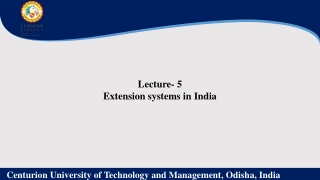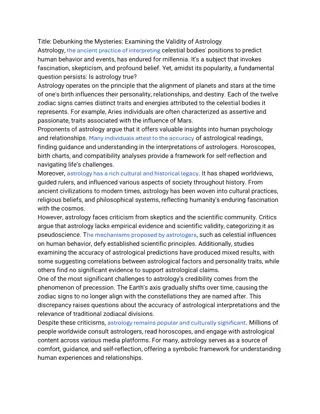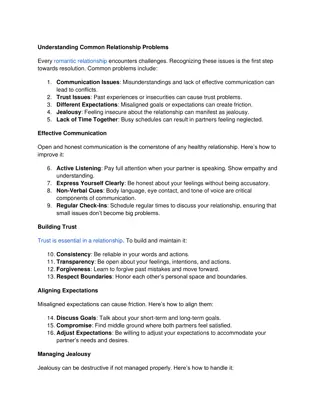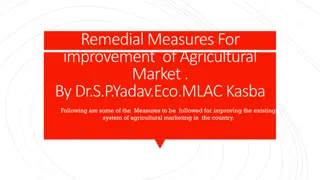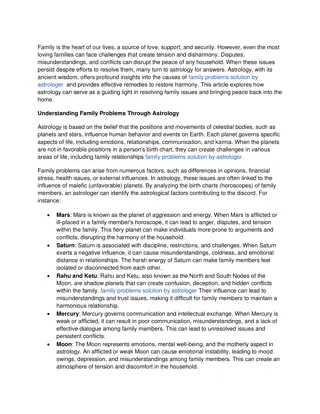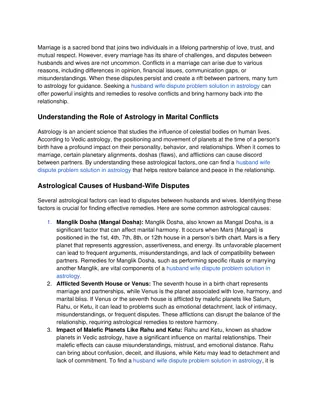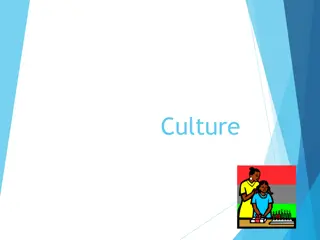The Evolution of Astrology: From Agricultural Significance to Cultural Importance
Humans discovered the agricultural implications of studying the stars post Ice Age, leading to improved harvests and settled communities. Astrologers interpreted celestial movements for predicting events, with planets playing a crucial role. Their perceived wisdom elevated their status in society, shaping the cultural significance of astrology.
Download Presentation

Please find below an Image/Link to download the presentation.
The content on the website is provided AS IS for your information and personal use only. It may not be sold, licensed, or shared on other websites without obtaining consent from the author. Download presentation by click this link. If you encounter any issues during the download, it is possible that the publisher has removed the file from their server.
E N D
Presentation Transcript
Astrology Astrology Written by David Ilsley Image: WallpaperUse
Starting around the end of the last ice age (~10 000 BCE) humans in several parts of the world discovered agriculture. With this, far more food could be produced than was available to hunter-gatherers. And so, the land could support far more people, the population increased dramatically, and people started to live in large settled communities. Image: freerangestock.com
But with large communities dependent on a few fields of crops, a bad harvest meant mass starvation. Image: pickpik.com
Seeds had to be planted at the right time of the year. Because of vagaries of the weather, it wasn t good enough just to wait till it gets warm. People noticed that the position of stars in the sky around sunrise and sunset could be used to tell the time of year quite accurately and this allowed people to plant at the best time. Image: flickr.com
Thus, people who studied the stars became important members of society. Astrologer means one who studies the stars. No distinction was made then between what we now call astrologers and astronomers. Image: picryl.com
Astrologers tended to see the heavens as the abode of the gods and the stars as being able to tell of their actions and thus of future events on Earth and the fortunes of humans. Image: Gratis Graphics, creator: Ralph
The fixed stars never changed from year to year, so they didn t have a lot of potential for predicting specific events. But the wandering stars (planets) moved in more unpredictable ways, difficult for ordinary people to understand. So, astrologers predictions were based more on these. The planets, the Sun and the Moon move along the ecliptic through the 12 zodiac constellations, so these gained special importance. Image: Wikimedia Commons
Being able to read these signs made astrologers seem even more valuable to their communities, and so they had an interest in convincing the people that they could do this. Astrologers became the wise men with esoteric knowledge that most people didn t understand. Image: flickr.com
Astrology had independent origins in many parts of the world. Western astrology came in large part from Mesopotamia, in particular the early Babylonian Empire of around 1700 BCE. Image: MapMaster / Wikipedia
It persisted in the Middle East through subsequent empires. When Alexander the Great brought much of Southern Asia and Egypt under Greek control around 334 BCE, the Greek empire adopted Babylonian astrology along with ideas from Egyptian astrology. Image: Captain Blood / Wikipedia
The Tetrabiblos and its companion volume, the Almagest, are texts on the philosophy and practice of astrology written by Ptolemy in the 2nd Century AD. They have been the most widely used sources of astrological information in the Western World. Image: Picryl.com
The Romans adopted Greek astrology when their empire subsumed the areas under Greek influence. The Muslims picked it up from the 7th Century CE when they took over much of what had been the Roman Empire. From there, it spread to Central and Western Europe in medieval times. Image: Simeon Netchev / World History Encyclopedia
Through most of this time, it was rarely questioned by the people. Emperors used it regularly and wouldn t make important decisions without consulting astrologers. It was considered to be knowledge as certain as today s knowledge that the planets go around the sun. It was on a par with knowledge of the gods and creation myths. It was the science of the time stuff that any educated person should know about and accept.
Of course, just as other parts of the world had different gods, they also had different astrologies which would give quite different predictions from the same situation. Image: Wikimedia Commons
In 17th Century in Europe the Age of Enlightenment was getting underway. Observation and logical reasoning based on what was observed started to replace the authority of ancient texts of unknown authorship as sources of reliable knowledge. Image: Wellcome Collection Science as we know it today was born.
As astrology texts were not based on any observations that withstood experimental verification, astrology began to lose its reputation as a reliable source of information. In the scientific method, astrology would be accepted if either: it could be shown that it gives predictions that are better than random guesswork to a statistically valid degree or: it could be shown from scientifically acceptable knowledge that the precepts of astrology must logically follow.
In the 20th Century, the claims of astrology were put to the test in statistical analyses. In almost every case, astrological predictions were found to be no more likely to be correct than random guesswork. [See the Wikipedia article Astrology and Science .] Also, modern science provides no mechanism by which the positions of heavenly bodies can influence people s personalities or the events in their lives, especially mechanisms which depend on the date of their birth.
Most scientists today consider astrology to be a pseudoscience an area of supposed knowledge not supported by normal scientific methods: they put it in the same category as many new-age ideas about crystals and screaming tomatoes. Image: Pinterest
However, since the 1960s, there has been a resurgence in belief in astrology. In some western countries, particularly the US, close to half the population believe that astrology is a valid source of information and take horoscopes seriously. In India, the figure would be even higher. The graph below shows the number of babies born each year in Japan.Many Japanese believe that women born in the hinoeuma year (1966) are unmarriageable and bring bad luck to their father or husband. Image: Wikipedia
The most common use of astrology nowadays is the reading of and reliance on horoscopes. Horoscopes provide very vague and general predictions which can in most cases be related to something that happens in a person s life around the said time. This is the same technique used by fortune tellers, sooth- sayers, oracles, prophets and the like. Image: Openclipart
There is an interesting 8-minute YouTube video in which Derren Brown writes horoscopes for 5 people that he doesn t know and amazes them by how accurate and insightful they are. Image: Wikimedia Commons It is at https://www.youtube.com/watch?v=neFRvEghhkc&t=220s if you are interested.
Most people who read horoscopes read them from magazines, newspapers or the Internet with no thought as to whether they are reliable. People are paid by publishers to right horoscopes because they will attract readers. The publishers will in general have no interest in whether the horoscopes are genuine or whether the writer just makes them up. Of course, even a genuine horoscope is based on manuals like the Tetrabiblos and Almagest, which ultimately were just made up at some time in the distant past.
Believers in astrology nowadays tend also to be believers in conspiracy theories and other ideas for which there is little or no reliable evidence. Image: Laes om konspirationsteoriens oprindelse lex.dk
One final thought. You are said to be an Aries if you were born between March 21 and April 19. During that time, the Sun is supposedly in the constellation Aries. However, if your birthday is April 5, right in the middle of that period, the Sun would actually have been in Pisces when you were born. 2000 years ago, the Sun was in Aries on April 5, but, because of the precession of the equinoxes, it no longer is. Some astrologers will explain this by saying that it is the house rather than the constellation that is important. Others will be unaware of the problem.
The End The End Astrologer in Brisbane: Online Astrology Consultation Starting at $0.65 /minute Image: Astroyogi



